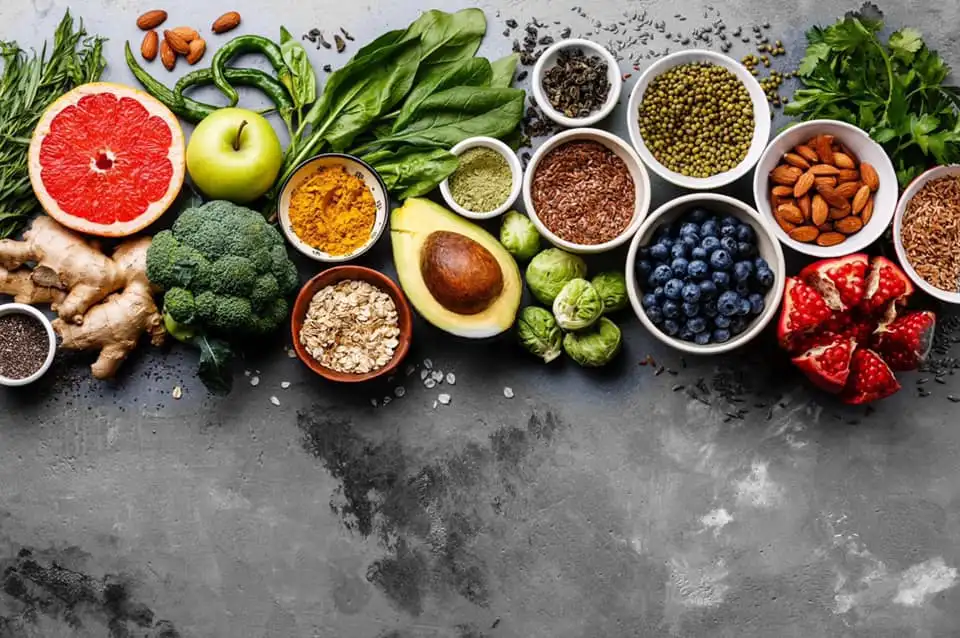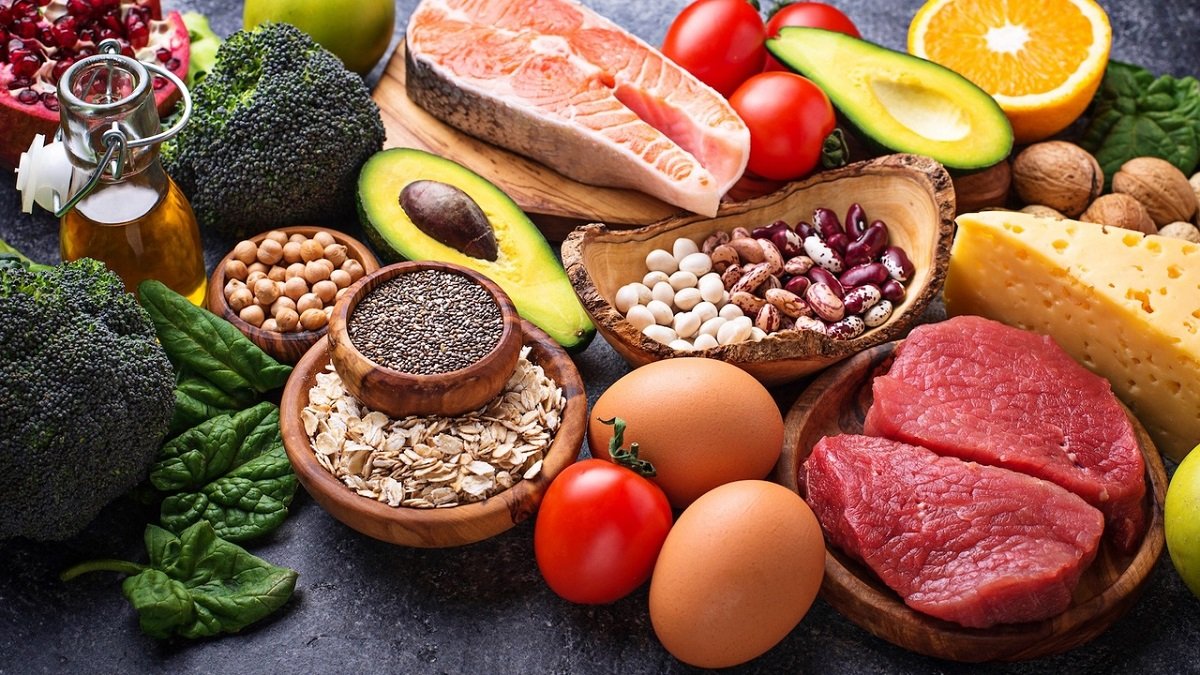The only way to combat the weather now that winter has come is to stay warm. The four coldest months of the year are from November to February. Maintaining your health by staying warm is just as vital as enjoying the cool weather. The metabolism slows down when the temperature drops to save energy and keep you warm. In such cases, you may turn to these foods to keep you warm.
You may stay warm all day long by eating various foods, such as whole grains, dry fruits, green veggies, and turmeric. These foods also increase lifespan, lower the risk of diabetes and cardiovascular disease, and are high in antioxidants and anti-inflammatory qualities. These are some of the greatest wintertime meals that will keep you warm and shield you from illness.
Include These Foods In Your Diet To Keep Yourself Warm

1. Ghee
We are well aware of the many benefits that ghee offers during the winter months. Packed with essential nutrients such as vitamin A, omega-3 fatty acids, and butyrate, ghee supports overall health in numerous ways. It plays a crucial role in improving digestion, which can be slower in colder weather.
Additionally, ghee helps to enhance vision, as it contains compounds that promote eye health, while also aiding in the maintenance of muscle mass, a concern for many during the winter season, along with being among the foods to keep you warm. Another significant advantage of ghee is its detoxifying properties, which assist the body in removing harmful toxins.
During the winter, dry and rough skin is a common issue for many people. Ghee provides an excellent natural remedy, as it moisturizes and nourishes the skin, preventing dryness and reducing roughness. On chilly mornings, consuming half a teaspoon of ghee can also strengthen the immune system, providing vital protection against seasonal illnesses.
2. Dry Fruits
In winter, who doesn’t like nuts and pistachios? However, did you realize that these delicious nuts provide health benefits? Nutrient-dense foods that are strong in antioxidants and good fats, such as almonds, walnuts, cashews, pistachios, sesame seeds, and sunflower seeds, help you keep warm for longer.
They are an excellent source of energy as well. Because they are high in vitamins, dietary fiber, and other nutrients, dried fruits are among the healthiest foods to eat throughout the winter. Dates, dried figs, and apricots are examples of dry fruits that boost your health and give warmth while warding off illness. They naturally include a lot of vitamins, dietary fiber, and other minerals.
3. Spices Such As Ginger, Mulethi, Tulsi, And Turmeric
Turmeric, ginger, mulethi, and tulsi are well-known for being among the foods to keep the body warm with their anti-inflammatory properties and are often used in traditional remedies to promote health and well-being. These spices can be easily incorporated into daily meals, such as soups, curries, and drinks, to enhance both flavor and health benefits.
In Ayurveda, ginger holds a special place as a powerful healer, known for its ability to alleviate a range of illnesses. It is rich in essential vitamins and minerals, including iron, magnesium, vitamin B6, and vitamin C, all of which contribute to improved overall health.
During colder months, adding ginger, tulsi, mulethi, or a warming kadha to your diet can help nourish the body and provide a comforting, spicy kick. These ingredients are also packed with antioxidants, which play a crucial role in slowing down memory loss, regulating the aging process, and boosting the immune system, helping to protect against seasonal illnesses.
4. Eggs And Chicken
Be it Sunday or Monday, eat eggs every day. Eating an egg every day gives you the energy you need to do everyday chores and keeps you warm throughout the winter. Furthermore, the ideal diet for non-vegetarians to remain warm is meat and eggs. These are the greatest protein and iron sources. Iron may be found in red meat, such as beef, lamb, and hog.
Individuals with low iron experience fatigue and chilly hands and feet. Vitamin B12, which supports strong neurons and a robust immune system, is another benefit of eating red meat. To achieve their protein and iron needs, pregnant women must also incorporate this into their diet. Before making any dietary adjustments, speak with your physician.
5. Root Vegetables
Do you relish the warmth of wintertime favorites like Sarson da Saag and Makii di Roti? These traditional dishes are not only delicious but also packed with nutritional benefits that make them perfect for cold weather.
Dark green and root vegetables, such as sweet potatoes, spinach, carrots, parsnips, and turnips, are rich in carbohydrates, offering a steady source of energy that helps keep you warm and energized throughout the day. These vegetable foods to keep you warm are also abundant in essential vitamins and minerals, including vitamin A, vitamin C, iron, and fiber, which support overall health.
Vitamin A helps promote good vision, while vitamin C boosts immunity, both crucial during the winter months when our bodies are more vulnerable to illnesses. Additionally, the high fiber content in these vegetables aids digestion and promotes a healthy gut. Incorporating these hearty vegetables into your winter meals ensures you stay nourished, strong, and comfortable all season long.
6. Whole Grains
During the cold winter months, many people enjoy incorporating Bajra and Ragi flour into their meals because of their natural heating properties, which help keep the body warm. These grains are not only comforting but also highly nutritious. In addition to Bajra and Ragi, other excellent options include oats, quinoa, barley, and brown rice.
These whole grains are rich in fiber and carbohydrates, providing a steady source of energy that helps maintain warmth throughout the day. The fiber content in these grains supports healthy digestion, while the carbohydrates offer lasting energy to keep you active. One of the best ways to start your day during the winter is with a hearty bowl of oatmeal or whole-grain chapati.
Both options provide essential nutrients that help regulate blood sugar levels, boost your energy, and even aid in weight management. Incorporating these wholesome grains into your meals ensures a nourishing and energizing winter diet.
7. Low-Sodium Soup
Soup is among the perfect foods to keep the body warm, especially when it’s homemade or low in salt. A serving of low-sodium soup typically contains 140 mg or less of sodium, making it a heart-healthy option for those looking to control their salt intake.
The term “reduced” sodium refers to soups that have had at least 25% of their sodium content eliminated, making them a much healthier choice compared to traditional canned soups. When preparing soups, it’s best to avoid ingredients like cream, meat, and excessive salt. Instead, focus on recipes that feature a variety of vegetables and a base of chicken broth, vegetable broth, or even water for a lighter, nourishing option.
For an added boost in nutrition, consider adding dry or canned beans or lentils to your soup. These legumes are excellent sources of fiber and fat-free protein, helping regulate hunger, improve digestion, and stabilize blood sugar levels, all while enhancing mood and providing lasting energy.
8. Jaggery
Jaggery, a popular sweetener widely used in northern India, is not only a flavorful addition to many dishes but also a powerhouse of nutrients. It is an excellent source of iron, which plays a crucial role in preventing anemia and raising hemoglobin levels in the body. This makes it particularly beneficial for individuals who are iron deficient or feeling weak and fatigued.
In addition to iron, jaggery is rich in essential minerals such as calcium, potassium, and magnesium, which support a variety of vital bodily functions. Calcium strengthens bones, potassium aids in maintaining proper fluid balance, and magnesium supports nerve and muscle function.
Jaggery is known to provide a quick energy boost, making it an ideal option for an afternoon pick-me-up. Moreover, it strengthens the immune system, helping to fight off illnesses like colds and coughs. Its natural detoxifying properties also help cleanse the body by removing harmful toxins, promoting overall health and well-being.
9. Honey
Honey is a versatile and beneficial addition to your diet during the winter months, offering both sweetness and health benefits. It is traditionally known for its soothing properties, especially when it comes to alleviating symptoms of cough and cold.
Honey can be consumed on its own or added to various dishes like salads or warm beverages to enjoy its natural benefits. It is also widely recognized for its antimicrobial and anti-inflammatory properties, making it a popular home remedy for respiratory issues. Pregnant and breastfeeding women can safely include honey in their diet, provided they do not have a history of diabetes, as honey is a natural source of sugar.
However, it’s important to note that honey should only be introduced to children once they reach the age of one. Babies under one year old should avoid honey due to the risk of botulism. Overall, honey is a nourishing and immune-boosting food that supports overall health during winter.
The Secret To Staying Safe During Winter Is To Have Regular Health Checkups
Winter brings its own set of health challenges, from cold weather and shorter days to the increased risk of seasonal illnesses. To stay safe and healthy during this time, one of the most important steps you can take is to have regular health checkups besides consuming the foods to keep you warm.
These checkups provide a proactive approach to maintaining your health and can help prevent serious complications during the winter months. Cold weather can exacerbate existing health conditions such as heart disease, asthma, and arthritis. Regular checkups allow healthcare providers to monitor chronic conditions, adjust medications, and offer advice on managing symptoms during the colder months.
For instance, patients with asthma may need adjustments to their inhalers or other medications to help manage the cold-induced flare-ups. Those with cardiovascular issues are advised to monitor their blood pressure and cholesterol levels, as cold weather can increase the risk of heart attacks and strokes.
Furthermore, winter is the season when colds, flu, and respiratory infections are most common. Health checkups can help in the early detection of these illnesses, enabling prompt treatment and reducing the severity of symptoms. Vaccinations, such as the flu shot, are often administered during these visits, providing an essential defense against seasonal viruses.
Winter also affects mental health, with conditions like Seasonal Affective Disorder (SAD) becoming more prevalent due to the lack of sunlight. Regular checkups can address mental well-being, offering screenings for depression and anxiety and suggesting therapies like light exposure or counseling.
In conclusion, regular health checkups are a vital tool for staying safe during the winter months. By maintaining routine visits to your healthcare provider, you ensure early detection of health issues, proper management of chronic conditions, and the support necessary to stay active and healthy through the winter season.
FAQ
Q: What foods cause the body to become hot?
A: Common kitchen items like onions, garlic, black pepper, ginger, and other spicy foods cause the body to become hot. Root vegetables are naturally hot and are therefore typically advised in the winter. Other foods that produce heat include spinach, beans, potatoes, broccoli, and so on.
Q: Which vitamin provides the body with warmth?
A: Omega-3 Fatty Acids: Omega-3 fatty acids may help lower inflammation in the body and are crucial for heart health. Foods including walnuts, flaxseeds, and fatty fish contain them. Increasing your intake of omega-3 fatty acids may help keep your body warm and healthy during the winter.
Q: Can I consume caffeine and alcoholic beverages to keep myself warm?
A: Taking caffeine and alcoholic beverages in moderation in winter isn’t harmful, but beware of the side effects of those.












I’m extremely impressed along with your writing talents and
also with the structure for your weblog. Is that this a paid topic or
did you modify it yourself? Either way stay up the nice
high quality writing, it’s uncommon to see a nice weblog
like this one today.
Thank you so much for the kind words! I customized it myself—I’m glad you like it! I really appreciate your support!
I am extremely impressed with your writing talents as neatly as with the format on your weblog. Is this a paid subject matter or did you customize it your self? Either way stay up the excellent quality writing, it’s rare to look a great blog like this one nowadays!
Thank you kindly! It’s all customized by me—just something I enjoy doing. Really appreciate your thoughtful words!